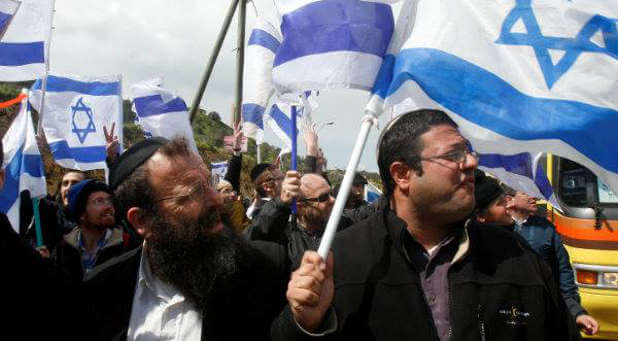Some of our Christian friends have used it to describe their love of Israel—and while I understand that this is done out a desire to show solidarity and support, this also can be seen by some as ignoring or redefining the essential element of Zionism as a natural outgrowth of Jewish identity in connection with the land of our people.
Over the past several decades, a great deal has changed. Instead of being the underdog, Israel, in the eyes of many, is now a pariah state. It has become de rigueur to demonize Zionism as the source of numerous evils.
In the past year, we watched in horror as riots broke out in Egypt, Yemen and elsewhere around the world. When tragically in Libya the American ambassador and three others were murdered at the American consulate in Benghazi by a mob supposedly angered by an anti-Muslim film, the question of whether the producer of the film was an Israeli Jew gave rise to more anti-Semitic speculation around the world. When it turned out that this was not the case, we breathed a collective sigh of relief—but the fact that this was even an issue belies the insecurity that Jews feel around the world.
As the number of similar riots continue to increase, I have no doubt that, in addition to anti-Americanism, they will also be fueled by anti-Semitic and anti-Zionist rhetoric.
Sadly, for many American Jews, Israel, instead of being a focal point of pride has become a source of discomfort or embarrassment.
I have colleagues who are afraid to even mention Israel from the pulpit—not because of their convictions, but because of the divisions and discord that doing so may create in their communities.
In addition, the more we talk about Israel’s “survival” the less focused we are on the real mission of the modern State of Israel as the embodiment of Jewish values, vision and history.
For a growing group of individuals—Jews and non-Jews alike—the issue of whether or not to be openly supportive of the State of Israel goes beyond politics. There are those for whom the idea of a sovereign Jewish State just feels wrong; for whom the concept of a separate country for the Jewish people is somehow backward and inappropriate. Their logic goes something like this:
In the old days, it was the divisions between peoples that caused wars and hatred. The mere existence of a modern-day state that proudly and openly proclaims itself to be “Jewish” is contrary to 21st-century values and understanding. Our shrinking, modern world with its intertwined systems of commerce, currency and communication is multinational and “post-ethnic.”
Rather than focusing on the differences between nations, this logic goes, the Western world needs to move beyond archaic and divisive ethnic, nationalist and religious distinctions and embrace a universal ideal of all people united under the banner of a common truth and belief in the equality of all humankind.
Perhaps it was John Lennon who embodied this vision best with his lyrics:
Imagine there’s no countries
It isn’t hard to do
Nothing to kill or die for
And no religion too
Imagine all the people
Living life in peace…
You may say I’m a dreamer
But I’m not the only one
I hope someday you’ll join us
And the world will be as one
How many of us grew up singing this song? How many of us saw it as a plea for sanity, peace and harmony in a world that seemed to be daily descending into the depths of destruction? I know that I did.
Lennon’s anthem of universal peace reflects a central leitmotif of much of modern Western thought. The concept of tearing down the walls that separate us has become so intertwined with our collective conscience that any talk of particularism goes against the grain of modern thinking.
Jewish tradition walks a fine line between Universalism and Particularism. Unlike other faiths, Judaism does not teach that it is only through living a Jewish life that one can achieve salvation. There are many pathways to holiness. We are not the only religion, nor do we see ourselves as the “best” religion.
The often misunderstood concept of “Chosenness” implies that the Jewish people have a unique role to play in the unfolding of history. But we were not chosen to be better. Rather, we were chosen to receive Torah and bring God’s presence into the world.
Most of us are comfortable with the Universal ideals of our faith. To state that all humanity was created in the Divine image; to reinforce the concept that salvation is open to all humanity makes us feel good about ourselves and our faith. But there are times when speaking of specific Jewish values, privileges and responsibilities make some feel uncomfortable.
An example of this occurs every Shabbat morning when we celebrate a bar or bat mitzvah—especially when there are many non-Jewish guests present. One of our goals during this service is to make everyone feel as welcome as possible—and we do a pretty good job. And yet, there is a fascinating point in the beginning of the service—during the opening blessings—called Nissim b’chol yom.












